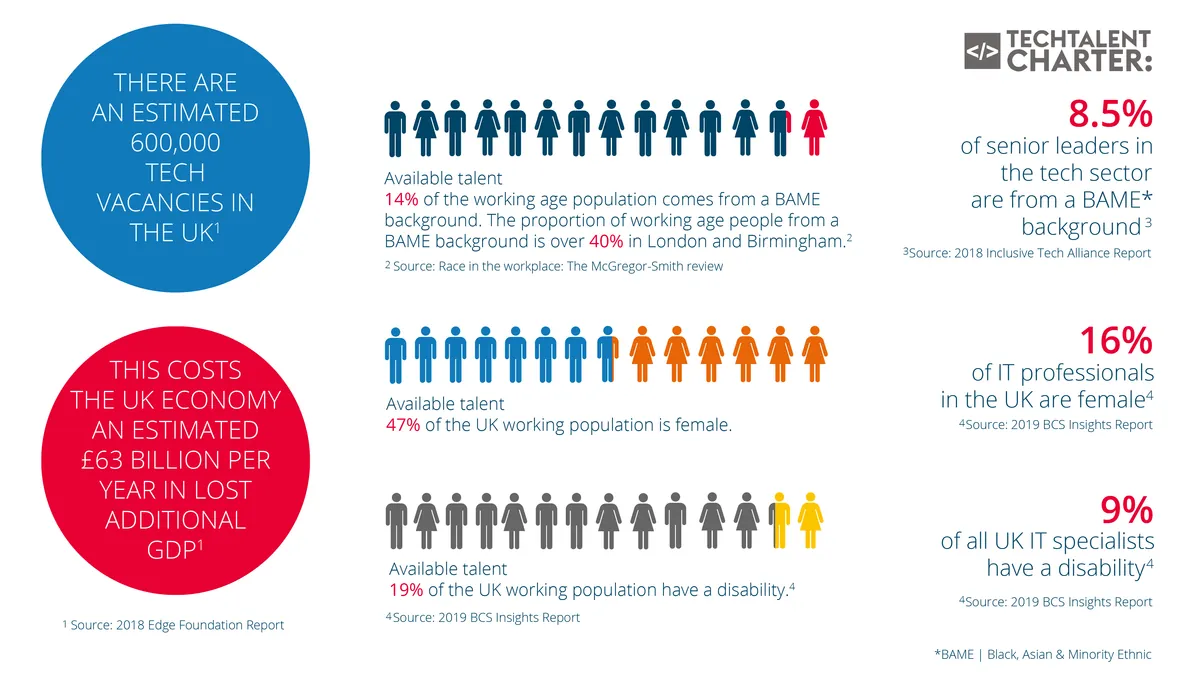EEOC Report Reveals Persistent Diversity Challenges in U.S. Tech Industry
EEOC analysis shows limited progress in diversifying the tech workforce from 2014 to 2022. Women, minorities, and older workers remain underrepresented, with potential illegal discrimination cited as a factor.

The U.S. tech industry has made minimal strides in diversifying its workforce over the past decade, according to a recent report by the Equal Employment Opportunity Commission (EEOC). The analysis, covering the period from 2014 to 2022, suggests that illegal discrimination may be contributing to the underrepresentation of women, minorities, and older workers in the sector.
The EEOC's 52-page report examined Census data and annual employer surveys, focusing on the "high tech workforce" of approximately 10.4 million individuals across 56 science, technology, engineering, and mathematics (STEM) occupations. Notably, more than half of technology workers are employed outside the traditional tech industry.
Key findings from the report reveal persistent disparities:
- Women comprised less than 23% of tech workers in 2022, despite making up nearly half of the U.S. workforce.
- Black workers accounted for 7.4% and Hispanic workers for about 10% of the high-tech workforce, significantly below their overall representation in the American workforce at 11.6% and 18.7%, respectively.
- The proportion of tech workers over 40 decreased from 55.9% in 2014 to 52.1% in 2022, falling below their representation in the overall U.S. workforce.

These statistics are particularly concerning given that the tech industry employs approximately 7% of the private sector workforce in the U.S. and accounts for about 10% of the country's GDP. The sector's rapid growth and expanding influence on society underscore the need for diverse perspectives in technology development and implementation.
EEOC Chair Charlotte Burrows emphasized the broader implications of this lack of diversity during a press conference:
"As you develop an algorithm ... it may be that you need a variety of perspectives to analyze that data."
The commission's report also highlighted higher rates of certain discrimination complaints in the tech industry compared to other sectors. In 2022, tech companies were more likely to face accusations of age discrimination, national origin bias, religious discrimination, and violations of equal pay laws.
Recent years have seen several high-profile discrimination lawsuits in the tech sector:
- Activision Blizzard paid $18 million in 2022 to settle claims of widespread bias against women.
- A major NASA spacecraft laboratory settled an age discrimination lawsuit for $10 million in 2020.
- Dell resolved claims of unequal pay for a female IT analyst in 2021.
These cases underscore the ongoing challenges faced by the industry in creating inclusive workplaces.
The EEOC plans to use the report's findings to inform its enforcement activities and support existing diversity efforts by companies. However, specific plans for increased scrutiny of tech companies were not announced.
As the tech industry continues to grow, addressing these diversity issues becomes increasingly crucial. With the sector projected to expand by 11% between 2019 and 2029, far outpacing the average for all occupations, ensuring equal opportunities for all workers will be essential for fostering innovation and creating technology that serves diverse communities effectively.


































